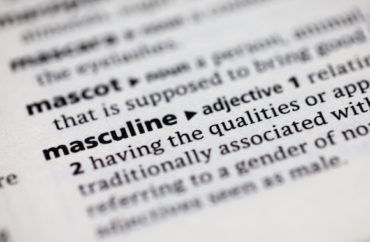
A two-and-a-half year-old study has come back to the fore which argues men’s unwillingness to let go of the traditional view of what’s “masculine” is responsible for eco-unfriendly lifestyles.
The research, published in the Journal of Consumer Research, says “men tend to be more concerned than women with gender-identity maintenance, [and] this green-feminine stereotype may motivate men to avoid green behaviors in order to preserve a macho image.”
Aaron Brough of Utah State University and his fellow researchers refer to this phenomenon as the “Green-Feminine Stereotype.” If this stereotype cannot be altered, “it has the potential to greatly damage our environment permanently.”
Forbes’ Carolyn Milton recently interviewed Brough and points out that in one of the researchers’ experiments, men and women were asked to remember a time “when they did something good or bad for the environment.” Those who remembered a “good” moment rated it as more “feminine” than a “bad” moment.
The researchers note this wasn’t merely because subjects were concerned with how they were perceived by others; subjects’ self-evaluations showed that eco-friendly behaviors were considered “feminine.”
Another experiment took the idea further and applied the concept of the “Green-Feminine Stereotype” to product and brand selection. Male participants were exposed to one of two Walmart gift cards—one that used more comically feminine design elements like pink and floral selected to threaten stereotypes or another gift card that was designed to not threaten stereotypes. The men were then asked to make a series of choices between green and non-green products to purchase. Men who were shown the “gender threat” gift card chose more non-green products than men shown the other gift card. That means that when men felt associated with femininity, they asserted their masculinity by making non-sustainable choices. …
[Now] seems like a perfect time to rebrand eco-friendly’s association with femininity as a positive thing. And men’s affiliation with positive environmental steps as a human-affirming truth that shifts us from negative and segregated gender identities into our roles as humans on this planet.
Other research shows men “experience greater psychological damage or face harsher consequences” when they’re viewed as exhibiting “female” attributes. Wall Street and academia are addressing this via discussions and “bias trainings,” but these stereotypes haven’t yet filtered through society at large and are “greatly affecting our shared environment for the worse.”
Says Brough: “We need to overcome our unhealthy judgments […] and live a sustainable lifestyle without caring what other people think.”
Read the Forbes article and study abstract.
MORE: Universities work to purge male students of their ‘toxic’ masculinity
MORE: ‘Toxic masculinity’ responsible for hatred of vegans
IMAGE: Sarioz / Shutterstock.com
Like The College Fix on Facebook / Follow us on Twitter





Please join the conversation about our stories on Facebook, Twitter, Instagram, Reddit, MeWe, Rumble, Gab, Minds and Gettr.